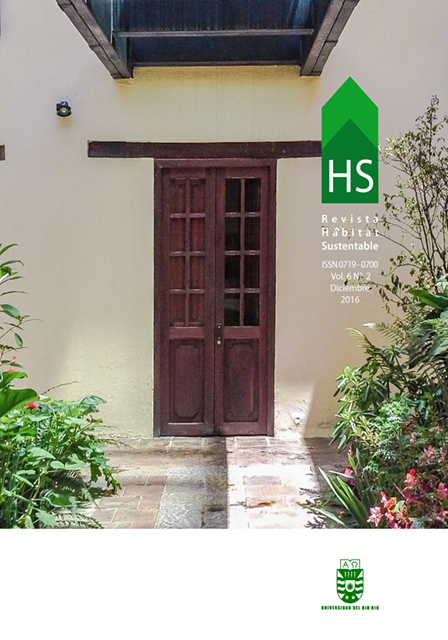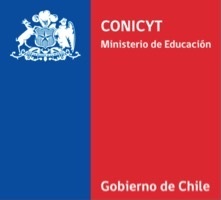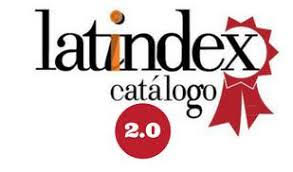Desarrollo de una herramienta para validar la influencia del comportamiento del usuario sobre la eficiencia energética en edificios públicos de oficinas.
Palavras-chave:
etiqueta de eficiencia energética del usuario, etiqueta de e ciencia energética del usuario, confort térmico, confort térmico, nivel de eficiencia del usuario, nivel de e ciencia del usuario, edificios públicos., edi cios públicosResumo
La problemática ambiental global conduce a que numerosos países incorporen estrategias de Eficiencia Energética (EE) a fin de disminuir el consumo de energía, aspecto que valoran mediante etiquetados o pasaportes de EE. Como hipótesis se considera que los usuarios de edificios
son responsables del consumo de energía no previsto en la etapa de funcionamiento, por lo
que el objetivo del presente trabajo es desarrollar y validar una herramienta de valoración del comportamiento de usuarios de espacios de trabajo en edificios públicos de oficinas. Para ello, se lleva a cabo un trabajo de campo en tres edificios ubicados en la ciudad de San Juan, Argentina. Se realizan encuestas a fin de evaluar los hábitos que el usuario emplea como estrategias para satisfacer su condición de confort térmico, en correlación con los consumos de energía registrados. Se elabora un indicador del Nivel de Eficiencia del Usuario (NEU) y se transfiere a una etiqueta, a efectos de obtener una rápida aprehensión por parte del mismo. Los resultados reflejan variaciones en la frecuencia de uso de artefactos de climatización, apertura de puertas y ventanas, control de parasoles y cortinas y modificación de la ropa por los usuarios, llegando a observarse variaciones del consumo energético del edificio. Los valores obtenidos del NEU, permiten demostrar la eficiencia del comportamiento de usuarios en relación al cuidado de la energía.
Downloads
Referências
ALONSO-FRANK, A; KUCHEN, E, ALAMINO-NARANJO, Y. Developing an energy efficiency assessment tool for buildings according to user behavior indoors. En: The 31° International PLEA Conference Passive Low Energy Architecture: Architecture in (R) Evolution. (Bologna, Italia. 2015).
BERSET, Alberto; TANIDES, Carlos; GRÜNHUT, Enrique. Etiquetado en eficiencia energética en motores eléctricos industriales y ahorro de energía. 2004.
DECRETO LEY N° 140. PRONUREE: Programa Nacional de uso racional y eficiente de la energía. Interés y prioridad nacional. Poder Ejecutivo Nacional (P.E.N.). Publicada en el Boletín Oficial del 24-dic-2007. Número: 31309. 2007. p. 4.
Energie Betriebsoptimierung - EnOB 2008. [En línea].Disponible en: . [Consultado el 8 de marzo 2016]
Energiieensparverordnung - EnEv 2014. [En línea]. Disponible en: , [Consultado el 8 de marzo 2016]
Instituto Nacional de Metrología Industrial, Estandarización y Calidad Industrial – INMETRO 2016. Programa Brasileiro de Etiquetagem (PBE). [En línea]. Disponible en: <http://www2.inmetro.gov.br/pbe/edifica.php> [en portugués], [Consultado 2 de junio 2016]
KUCHEN, E. Spot-Monitoring zum thermischen Komfort in Bürogebäuden. Tesis de Doctorado. Der Andere Verlag, S. 203, Tönning, Deutschland. 2008.
KUCHEN, E.; PLESSER, S.; FISCH, M. N. Eficiencia Energética y Confort en Edificios de Oficina. En: XI ENCAC Encontro Nacional de Conforto no Ambiente Construido. Rio de Janeiro, Brasil. 2011
NORMA I. R. A. M. 11603: Acondicionamiento térmico de edificios. Clasificación bioambiental de la República Argentina. Buenos Aires. Argentina, 1996.
NORMA I. R. A. M. 62404-1: Etiquetado de eficiencia energética. Buenos Aires. Argentina, 2009.
PACHECO, B.; PANEQUE, A.; COLLADO, D., VIÑOLES, R., & CAPUZ, S. Actitud de los consumidores frente a las etiquetas ambientales. En: XII Congreso Internacional de Ingeniería de Proyectos. 2008. p. 1268-1279.
RUÁ, M. J.; LÓPEZ-MESA, B. Certificación energética de edificios en España y sus implicaciones económicas. Informes de la Construcción, 2012, vol. 64, no 527, p. 307-318.
TANIDES, C. G. Etiquetado en eficiencia energética y valores de consumo máximo. Avances en Energías Renovables y Medio Ambiente, (AVERMA).vol. 8, N° 2.2004
Downloads
Publicado
Como Citar
Edição
Secção
Licença
O conteúdo dos artigos publicados em cada número do Habitat Sustentável é da exclusiva responsabilidade dos autores e não representa necessariamente o pensamento ou compromete a opinião da Universidad del Bío-Bío.
Os autores mantêm os seus direitos de autor e concedem à revista o direito de primeira publicação da sua obra, que está simultaneamente sujeita à Licença de Atribuição Creative Commons CC BY-SA que permite a outros partilhar, transformar ou criar novo material a partir desta obra para fins não comerciais, desde que a autoria e a primeira publicação nesta revista sejam reconhecidas, e as suas novas criações sejam licenciadas sob os mesmos termos.











 Programa de Informação Científica/Concurso Fondos de Publicación de Revistas Científicas 2018/ Proyecto Mejoramiento de Visibilidad de Revistas UBB (Código:FP180007)
Programa de Informação Científica/Concurso Fondos de Publicación de Revistas Científicas 2018/ Proyecto Mejoramiento de Visibilidad de Revistas UBB (Código:FP180007)





